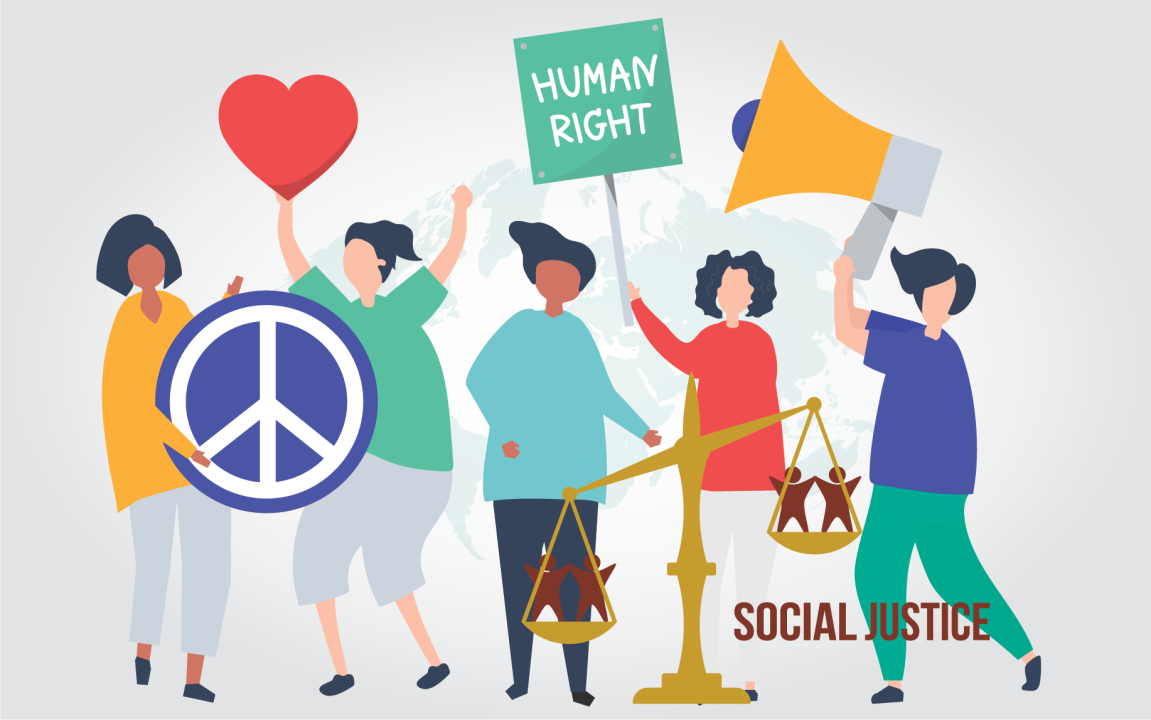The Intersection of Faith and Social Justice: A Critical Analysis
It is no secret that faith and social justice are two forces that can work together to bring about positive change in the world. As a result, believers need to understand how these two aspects of life intersect. By engaging in a study bible and other scripture-based research, followers of faith can gain new insights into the importance of social justice and how it relates to their spiritual lives. This article will explore the intersection between faith and social justice through critical analysis.
What is social justice?
Social justice is the concept of fairness, equity, and equality between all members of society. It involves recognizing disparities in power and resources based on factors such as race, gender, class, religion, culture, or sexual orientation, and taking steps to address them so that everyone has access to basic rights and opportunities.

Why is social justice important?
Social justice is important because it helps to create a fairer society where people can live with dignity, regardless of their background or identity. When people have access to equal opportunities in education, employment, healthcare, housing, etc., they are better able to reach their full potential and make a positive contribution to society as a whole. In addition, when individuals feel respected within their communities, they tend to be more engaged citizens who actively participate in creating a healthier environment for everyone around them.
How does faith relate to social justice?
Faith has long been associated with social justice because of its focus on helping others before oneself through selfless acts such as charity or volunteering. Faith also teaches us about compassion for our fellow human beings, which provides an additional impetus to strive for greater fairness among all people, regardless of the differences that may exist between them. In addition, many faiths emphasize the importance of treating every human being equally in the eyes of God, so this too lends itself naturally to advocacy for greater social justice in societies around the world.

What does the Bible say about social justice?
The Bible contains many passages that discuss how believers should treat others fairly, regardless of their background or identity. For example, Leviticus 19:15 says: “Do not pervert justice, do not show partiality…”. This passage serves as an admonition against injustice while reminding us that we should always strive to treat others fairly, without prejudice or favoritism. In addition, Proverbs 31:8-9 highlights the role of women in society by encouraging leaders to “speak up for those who cannot speak for themselves”, thus emphasizing that the protection of vulnerable groups should be prioritized when assessing social injustices.
Finally, Matthew 5:7 not only warns believers against doing harm but also advises us that “Blessed are those who hunger and thirst for righteousness”, suggesting that the pursuit of true justice should be one’s ultimate goal.
Conclusion
In conclusion, the study of scripture, both Old Testament texts and traditional modern interpretations, can provide valuable insight into how powerful faith can be when combined with efforts to bring about greater social equality in our global community. Thus, believers can use this knowledge gained from exploring religious scriptures such as study Bibles along with other research materials containing information related to current issues of relevance today, such as climate change, poverty alleviation, health care reform, etc… to truly appreciate what it means to bring about meaningful change by addressing pressing issues specifically related to matters of social injustice.
